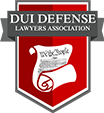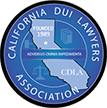With the ever-increasing road carnage caused by drunk driving, California’s authorities relentlessly hunt for motorists driving under the influence. While most cases involve alcohol intoxication, you can also be charged under California Vehicle Code 23152(f) VC for driving under the influence of drugs (DUID). You are considered intoxicated and impaired if you cannot operate a car like a sober person because of alcohol, drugs, or a combination of both. Unfortunately, you can still face a DUID conviction if the impairing drugs are legal or prescribed. At Bakersfield DUI Attorney, we can help you fight the charges even when impaired by illegal or over-the-counter medications. After a thorough case analysis, we will inform you of your rights and strategize on the best way to achieve a favorable outcome.
Irrespective of how bad your situation may seem, fighting DUI charges in California is always worth it. There are more than a few sure defenses we could capitalize on to win your case and bring home -praiseworthy results.
The Basics of DUID (Driving Under the Influence of Drugs)
DUI or driving under the influence is the general legal term for driving an automobile while intoxicated or impaired by drugs or alcohol. California Vehicle Code 23152(f) explicitly prohibits driving under the influence of drugs.
So, what is considered a drug in DUID cases?
Legally, any substance that can affect or cause impairment of the brain, central nervous system, or muscles is a drug. You can be convicted of DUID if caught operating a car while impaired by such substances because they hinder you from driving like a sober person.
Two laws make DUID illegal in California. They include
- Vehicle Code 23152(f) VC — Prohibits operating an automobile under the influence of drugs
- Vehicle Code 23152(g) VC — Prohibits driving while impaired by a combination of drugs and alcohol
Impairment caused by illegal, legal, prescribed, and over-the-counter medicines can attract DUID charges. While it is not illegal to drive after taking prescription medication, it is reckless to get behind the wheel if the drugs in question cause impairment. If convicted of a drug-related DUI, you could lose your driving privileges, spend time behind bars and pay hefty fines.
Substances (Drugs) That Commonly Cause Impairment and DUID Charges
Police officers have the authority to pull you over if they suspect you are driving under the influence of alcohol or drugs. Through blood tests, they can prove a defendant’s guilt and justify an arrest.
Here are the top 7 drugs that commonly lead to DUID charges:
Marijuana
While the use of marijuana for recreational or medicinal purposes is legal in California, this does not make it acceptable to drive under the influence of the drug. If caught behind the wheel while high on weed, you risk facing harsh punishment for violating Vehicle Code 23152(f) VC.
Heroin
Heroin is one of the deadliest drugs on the market. It also goes by the names smack, H-horse, black tar, and A-bomb and is dreaded for its impairing high and addictive nature. Because heroin is not used for medicinal purposes, driving while high on the drug often attracts devastating legal consequences.
Codeine
Codeine is a prescribed sedation drug and pain killer. While it is instrumental in the world of medicine, it is unfortunately heavily abused for its “uplifting” cerebral effects. The impairment caused by codeine makes it illegal to drive after using the drug.
PCP
PCP, also referred to as Phencyclidine, is used in medicine as an anesthetic. This drug goes by different street names, including Rocket Fuel, Angel Dust, and Super Grass. While it is mainly reserved for animal treatments, it is also used by junkies who love it for its ability to kick in within mere minutes and provide a high that lasts for over two days.
Hydrocodone
Hydrocodone is well known as Vicodin. It is an analgesic that poses no harm when used in minimal dosages. However, it is known to cause severe impairment when used in high dosages, and this can cause safety risks for drivers.
If caught behind the wheel while impaired by hydrocodone, we can argue that you only took a small dosage. This often works as a powerful defense for DUID charges.
Methamphetamines
Methamphetamine, best known by its short-form “meth,” is a potent stimulant that accelerates body and organ functions. This drug goes by many names, including speed, ice, and crystal meth. While we cannot dispute its usefulness in treating obesity and ADHD, it causes severe impairment that can harm drivers and other road users.
Ambien
Ambien is a common sleep-inducing drug with powerful sedative properties. While it can offer just the remedies you need if you have trouble sleeping, it is also known to cause sleep-driving and sleep-walking. Even if you are on prescribed Ambien, you could face DUID charges if caught behind the wheel.
Elements of DUID
California laws allow police officers to arrest a driver on “driving under the influence of drugs” (DUID) grounds if they have reason to believe they are impaired by drugs. The state laws allow an arrest to be made whether the drugs in question are prescribed, legal, illegal or over-the-counter medication.
Here is what the prosecution needs to prove beyond a reasonable doubt to make a DUID conviction:
Driving “Under the Influence”
For a DUID charge to stand, the prosecution must prove you were operating an automobile “under the influence.” There are two main ways they can table their argument:
- Per se DUID
- Impairment DUID
Per se, DUID cases merely require the prosecution to show you were driving after using a certain amount of alcohol or drugs. In this case, it is not necessary to prove that consuming the liquor or drugs caused impairment. As long as a specific drug’s concentration is above a particular limit, you are deemed to be driving under the influence.
With impaired DUID, the prosecution needs to prove that you were stoned, drunk, or both. The greater the level of impairment, the harsher the penalties you may face. This is irrespective of whether the impairing drug is prescribed, legal or illegal.
There are two main ways of proving that you were driving under the influence. The arresting officer can demand a drug test or testify based on the observations that promoted a traffic stop.
An officer can pull you over and arrest you if the following is observed:
- Erratic driving — You were violating traffic signs or driving recklessly.
- Belligerent or erratic behavior during a traffic stop — You showed signs of intoxication such as being uncooperative, inability to follow directions, incoherent or slurring speech.
- You failed the sobriety tests.
Operating an Automobile (Driving)
In California, the prosecution needs to prove you were driving and in actual physical control of a vehicle for DUID charges to stand.
The meaning of being in “actual physical control” of a vehicle can be interpreted in different ways, and that is why you must seek reliable legal representation as soon as you are arrested. In any case, an impaired person who can opt to drastically get behind the wheel is just as dangerous as one who is already driving while impaired.
Some of the factors that determine the interpretation of being in “actual physical control” include:
- Whether a vehicle’s motor was running at the time of an arrest
- Whether the police found the driver asleep or awake
- The proximity of a drunk driver to the steering wheel
- The position of the car keys during an arrest
The courts will deem you to be in “actual physical control” of a vehicle based on how quickly you could opt to put the car in motion.
Understanding How the Police Test For Impairment
Testing whether a driver is high on alcohol is easy. The police merely need to use a breathalyzer. However, it is challenging to test whether drugs impair a driver because of the lack of hand-held devices that can perform this task and provide instant results. This makes it considerably challenging to gather evidence and make an arrest on DUID grounds.
If an officer has strong reason to believe drugs impair a driver, he or she may call for the assistance of a drug recognition expert (DRE). This is also a police officer, but one with special training on how to evaluate intoxication.
A DRE may conduct the following tests to determine drug intoxication:
- Oversee a field sobriety test
- Test the alcohol levels in a driver’s blood
- Examine a driver’s pupils and pulse
- Check the eyes for jerks
- Check a driver for drug injection sites
- Evaluate a driver’s muscle tone
- Question a driver and check for belligerent behavior and jumbled speech
Penalties for Driving Under the Influence of Drugs
If caught driving under the influence of drugs, you may be charged with a felony or misdemeanor. The charges you face will depend on the unique circumstances that prompted an arrest and whether you have been charged with previous DUID offenses.
First-time Offense
As a first-time offender, the penalties you may face include:
- Not less than a $390 fine
- Minimum of 6 months behind bars
- DUI probation in place of serving a jail sentence
- Revoked driving privileges for six-month
- Mandatory court order to enroll in a DUI school
Second-Time Offense Within 10 Years
- Minimum fine of $390
- Incarceration of between 90 days to 1 year
- Revoked driving privileges for two years
- Compulsory court order to join a DUI program
- Possible probation even after spending time in jail
Third-Time Offense Within 10 Years
- Minimum fine of $390
- Between 120 days and one-year jail sentence
- Revoked driving privileges for three years
- Mandatory enrollment in 30 months or more DUI program
- Possible probation after serving a jail sentence
Fourth or Subsequent Offenses Within 10 Years
- A felony conviction under California Vehicle Code §23550
- Not less than a $390 fine
- Incarceration for 16months to 3 years
- Revoked driver’s license for four years
- Habitual traffic offender record for three years after a conviction
Previous Felony DUI/DUID Within 10 Years
- Up to one-year incarceration
- Minimum fine of $390
- Revoked driver’s license for four years
- Habitual traffic offender record for three years after a conviction
Driving under the influence of drugs (DUID) attracts misdemeanor charges under California Vehicle Code 23152(e). However, an offense turns into a felony under certain circumstances, including:
- Prior DUI DUID felony conviction
- Fourth or subsequent offense in 10 years
- An accident that causes the death or bodily injuries of a third party
A judge may consider a variety of factors before deciding the ideal penalties for a DUID offender. These factors may include:
- Your criminal history, more so convictions allied with DUI and DUID
- The unique circumstance around your DUID case
- Possibility of benefiting from a DUI program
- Whether or not your offense caused harm to a third party
In California, repeat offenders are judged harshly and often pay heftier fines, spend time in DUI schools and face extended probation or jail time. It is also common for repeat offenders to lose their driving privileges for longer. With our help, you can battle DUID charges to have them withdrawn or at least to ensure you only suffer the minimal penalties.
Common DUID Defenses
Driving under the influence of drugs is considered a serious offense worthy of attracting severe repercussions. On the bright side, most cases are defendable, and a skilled lawyer will have a few tricks up their sleeve to ensure the best possible outcome.
Some of the common defenses for DUID include:
Police Didn’t Follow Standard Procedure during an Arrest
Even intoxicated drivers have rights that the police must respect before, during, and after an arrest. If the authorities fail to follow standard procedures, this could be enough grounds to have your charges kicked out. For instance, you have a right to talk to your attorney during interrogations. If this right is denied, the courts are likely to dismiss your case.
Inaccurate Breathalyzer Test Results
Breathalyzers are handy gadgets that can count the particles of alcohol from the breath in your lungs and give an estimate of alcohol levels in your blood. Unfortunately, such devices are prone to faults, especially if they go for long without calibration.
For this defense to work, your attorney may need to work with a skilled forensic toxicology expert. Such a professional can verify breath testing flaws and present a report that may work in your favor. Because breathalyzers have an inherent 10% margin of error, a favorable testimony from a forensic toxicology expert is highly likely to result in the dismissal of your case.
Illegal Stop
Again, there are standard procedures the police must follow before, during, and after a DUID arrest. Typically, the authorities should not stop you unless they have reason to believe you are violating traffic laws.
The Fourth Amendment of the Constitution protects you from unreasonable searches and seizures. Subsequently, the courts deem stops based solely on a hunch as illegal and unjustified. Your attorney can file a motion to suppress evidence obtained from the “illegal” stop and search.
Invalid/Inaccurate Field Sobriety Test Results
Field Sobriety Tests are standardized”. This means they have to be administered and instructed in a specific manner all the time. Any deviation from the “standard” way of performing the tests can cause between 30% to 40% inaccuracies in the results. Typically, tests conducted on the elderly, obese, or handicapped hardly yield accurate results.
Additionally, some of the police officers’ tests are not recognized by the National Highway Transportation Safety Administration (NHTSA) or even the Federal Government. The prosecution cannot demonstrate your impairment based on the results of unstandardized tests such as reciting the alphabet or balancing tests.
You Were Not Driving or In Actual Physical Control Of Your Car
Your impairment by drugs, alcohol, or both cannot harm the motoring public if you are neither driving nor in actual physical control of a car. In a case where you had all that is required to get behind the wheel quickly, your attorney can argue that the “totality of the circumstances” made it impossible for you to be a real danger to yourself or the motoring public.
While most DUID cases are defendable, it takes having a competent attorney in your corner to enjoy a suitable outcome. We have years of experience in the courtroom and know just what to do to put up a winning defense. The sooner you contact us, the sooner we can begin to strategize on the best way to handle your case.
Find a Bakersfield DUI Attorney Near Me
DUID cases are highly defensible because there is no instant, standard method of establishing a driver’s impairment level. The prosecution bears a heavy burden of proof irrespective of whether the impairing drugs are legal, illegal, prescribed, or over-the-counter prescriptions. Additionally, we could use numerous defense strategies, from questioning an arresting officer’s credibility to casting doubt on field sobriety tests’ accuracy. If you are accused of DUID in Bakersfield, CA, contact us as soon as possible. At Bakersfield DUI Attorney, we have a proven track record of fighting for our client’s rights and providing outstanding defense. For more information, contact our firm today at 661-215-5660.







